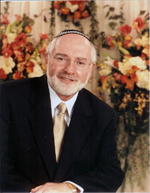By Rabbi Dr. Bernhard H. Rosenberg

EDISON, New Jersey — Joe Biden was declared by media projections on Saturday to be elected as the 46th president of the United States, defeating President Trump with a critical assist from Biden’s birth state, Pennsylvania, which delivered the votes to propel him to victory and end one of the most contentious elections in recent memory.
“It’s time for America to unite. And to heal,” said Biden, 77, who is the first candidate to unseat a sitting president since 1992, when Bill Clinton defeated George H.W. Bush.
“With the campaign over, it’s time to put the anger and the harsh rhetoric behind us and come together as a nation. There’s nothing we can’t do if we do it.”
President Trump vowed not to give up on his re-election hopes. “The simple fact is this election is far from over,” he said in a statement from his campaign. “Legal votes decide who is president, not the news media.”
So many of us are stuck, unable to move forward. And yet, we must.
Perhaps we can learn how from Father Abraham. In the Torah, we read of the Akeda, the story (Gen. 22) of the binding of Isaac. It begins with the words: Vay’hi achar had’varim ha-eyleh (And it happened after these things). The Rashbam comments: Kol makom sh’ne’emar achar had’varim ha-eyleh, m’chubar al haparsha shel’mala (Every place where the Torah says, “After these things,” it is connected to the text above it).
Although the story of the binding of Isaac introduces a new narrative, it directs us to interpret it against the backdrop of the previous text. So more than just a chronological notation, when the Torah says, “After these things” it really means, “against the backdrop of these things.” The story then builds upon the drama we previously read of Abraham sending away Ishmael, and the treaty he made with Avimelech. With the sending away of Ishmael—Abraham’s son with Hagar—it was established that Isaac would be the leader of G-d’s people … and with the treaty made with Avimelech it was established that Abraham was a recognized resident of the Holy Land that would be given to his descendants. In other words, it is our past experiences, and the dramas of our lives that make us who we are. Achar had’varim ha’eyleh means that we must face what comes next. For Abraham, he had to withstand his greatest test—the Binding of Isaac…and because of what had happened before, he was able to say to G-d, “Hineyni (I am here), I am ready.”
We are now in an Achar had’varim ha’eyleh moment—perhaps stuck and unable to imagine moving forward. But we must fortify ourselves with our past, and use what we know to thrust us into the unknown, with the optimism that the world ahead will bring blessing, renewal and growth. And remember, our Sages teach us that ultimately it is G-d who chooses our world leaders. So whoever becomes president, let’s accept it in the knowledge that this is what G-d thinks the world needs now. And who are we to argue with G-d?
*
Rabbi Dr. Bernhard H. Rosenberg is rabbi emeritus of Congregation Beth-El in Edison, New Jersey and is the author of Theological and Halachich Reflections on the Holocaust, among other books. He serves on the New Jersey State Holocaust Commission and chairs the Holocaust Commission of the New York Board of Rabbis.